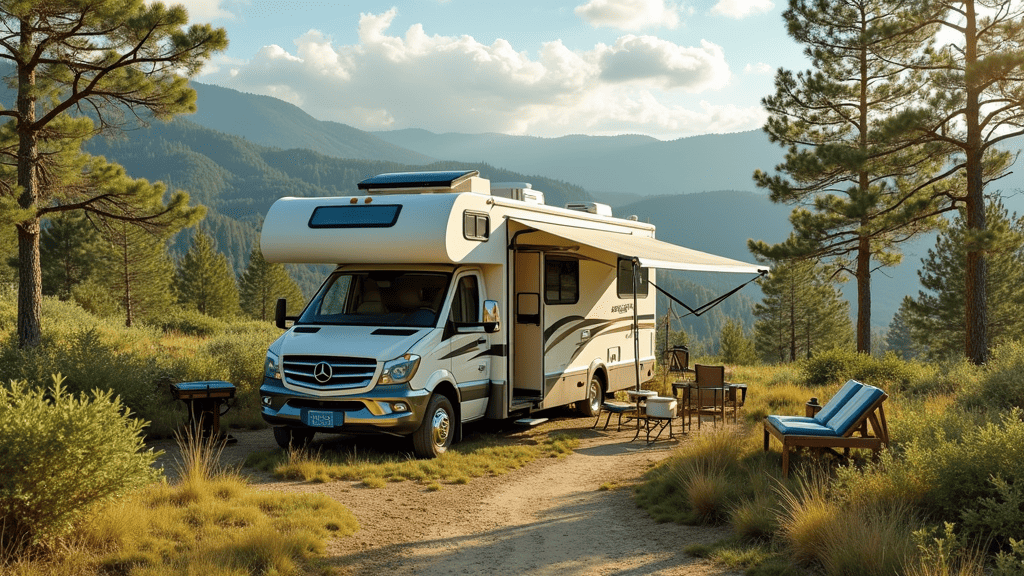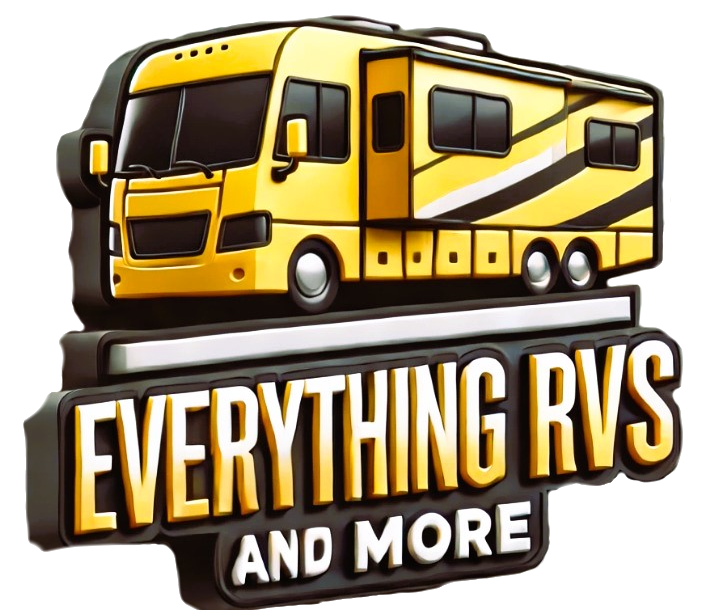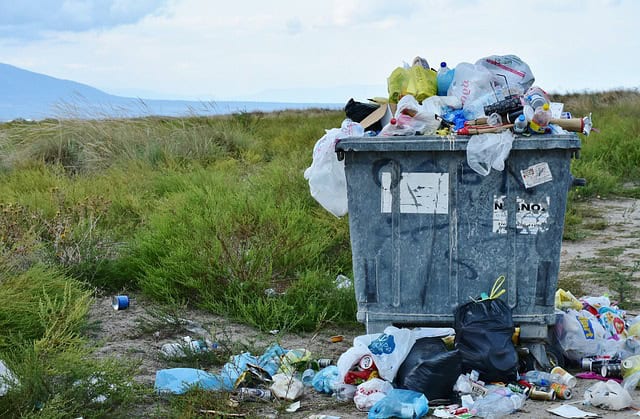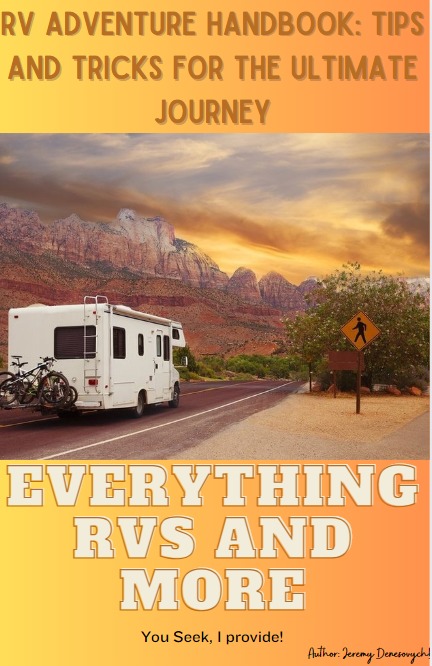Affiliate Disclosure: I earn commissions if you shop through the links below at no additional cost to you.
Last Updated on March 21, 2025 by Jeremy
RV living offers freedom and adventure, but it also requires careful planning to ensure we protect the environment. Reducing waste while on the road is both a smart and sustainable approach. Small changes in habits can lead to big environmental benefits, and this guide explains how to make your RVing experience greener.
Many RV enthusiasts enjoy the simplicity of life on the road while also embracing nature. However, improper waste management can harm the beautiful settings you visit. This article checks out practical strategies to reduce waste, ensuring that your adventures leave a minimal footprint. Following these steps can lead to a cleaner and more sustainable RV lifestyle.

Step 1: Assess Your Current RV Waste
Before making any changes, it’s helpful to evaluate how much waste you currently generate during your travels. Tracking waste production helps you identify areas where improvements can be made. Taking the time to sit down with a notebook or digital tracker and list out your waste sources is a very important first move. It gives you a clear understanding of what needs to be tackled so you can plan accordingly.
Questions to Consider:
- What types of waste do I produce most often? Is it food packaging, disposable cutlery, or plastic bottles?
- How do I dispose of or recycle my waste when on the road?
- Do I purchase items that could be replaced by more sustainable alternatives?
- How often do I favor disposable products over reusable ones?
Observations You Might Make:
- Most waste comes from non-reusable groceries and food packaging.
- Often, there is little emphasis on recycling or repurposing items.
- Daily habits frequently have room for more eco-friendly alternatives.
Having a clear picture of your current habits provides a solid basis for making sustainable changes. It is a simple but effective starting point that paves the way for a more responsible RV lifestyle. Take some extra time here to list even minor waste contributions; sometimes the smallest items add up over long journeys.
Extra Tip: Keep a waste log for a week to track every piece of trash and recyclable material. This extra record can help you spot trends that aren’t immediately obvious and give you ideas for reducing waste further in the future.
Step 2: Plan for a Zero-Waste Trip
Planning your trip with waste reduction in mind can lead to a more organized and waste-aware adventure. Taking the time to plan before you leave helps smooth the way in avoiding unnecessary waste on the road. This proactive approach benefits both your travel experience and the environment.
Considerations for Trip Planning:
- Map out recycling centers and disposal facilities along your route.
- Create a packing checklist that emphasizes reusable and eco-friendly items.
- Identify local markets where fresh, unpackaged produce is available.
- Plan meals around ingredients that don’t require extensive packaging.
Planning Benefits:
- Reduces the likelihood of carrying disposable items.
- Encourages a sustainable, low-waste lifestyle while traveling.
- Makes it easier to stick to your waste reduction goals throughout the trip.
By mapping out your journey with waste management in mind, you can avoid many common pitfalls. This approach supports both your travel plans and the environment. In addition, preparing well in advance leads to fewer surprises on the road, meaning you can relax and fully enjoy your adventure.
Extra Consideration: Spend some time researching local apps or online forums that provide up-to-date information about recycling centers and eco-friendly stores near your route. This extra research can be invaluable and help you adjust your plans on the fly if needed.
Step 3: Incorporate Reusable and Eco-Friendly Items
Changing everyday items to reusable versions can significantly reduce waste. When on the road, every small step counts toward lessening your environmental footprint. By choosing items that can be used over and over, you set yourself up for a more sustainable adventure.
Reusable Items to Consider:
- Water Bottles: Invest in a sturdy, reusable bottle to avoid purchasing disposable ones.
- Food Containers: Bring along glass or BPA-free containers instead of single-use plastic bags.
- Utensils: Pack a set of reusable silverware and cups for meals on the go.
- Shopping Bags: Keep a few reusable bags handy for groceries or other purchases.
- Cleaning Supplies: Use washable cloths and eco-friendly cleaning products to cut down on disposable wipes.
Upgrading Your Gear:
- Switch to LED lights inside your RV to save energy.
- Consider solar chargers for small devices so you don’t rely on chemical batteries.
Gradually replacing disposable items with reusables creates a lasting impact. It may feel like a small switch at first, but it all adds up over time to reduce waste and give a boost to the environment. Every time you choose reusables, you contribute to a cleaner planet.
Extra Insight: Visit local zero-waste stores or check online for eco-friendly product reviews. Spending some extra time to research products can help you invest smartly in items that not only last longer but are also easier on the environment.
Step 4: Manage and Dispose of Garbage Responsibly
Even with careful planning, waste will still occur. The key is to handle what is produced in a responsible manner. Proper garbage management is essential for minimizing the impact of RVing on the environment. Setting up simple systems for waste sorting can make all the difference in reducing your overall ecological footprint.
Effective Waste Disposal Methods:
- Sort Out Your Waste: Separate recyclables, organic waste, and general trash from the beginning.
- Reuse Packaging: Whenever possible, repurpose boxes or containers rather than throwing them away.
- Plan Stops: Identify disposal sites along your route where you can drop off recyclables and waste safely.
- Invest in Composting: For organic matter, consider a small compost bin that can be used during your travels.
Practical Disposal Tips:
- Label bins clearly to make sorting waste easier.
- Keep a small bag for each type of waste to prevent mixing up recyclables and trash.
- Monitor your waste output and adjust your practices if you find too much reliance on disposables.
Managing waste does not require complicated systems. Simple routines and consistent effort in sorting and disposing properly can make a noticeable difference. This approach not only cuts down on harmful waste but also sets a positive example for others traveling along the same path.
Additional Note: Consider sharing your waste management tips with fellow RVers. By talking with others during your stops, you might pick up extra ideas that can help every traveler reduce waste on the road even further.
Step 5: Reduce Water and Energy Waste
Efficiency is key when resources in an RV are limited. Conserving water and energy not only benefits the environment but also makes your travels more cost-effective. When every drop of water and every watt counts, minor adjustments in daily routines can yield impressive savings over time.
Energy-Saving Practices:
- Optimize Appliance Usage: Use energy-efficient appliances and remember to switch them off when not in use.
- Solar Energy: Install solar panels to supplement power and reduce reliance on fossil fuels.
- LED Lighting: Replace traditional bulbs with LED options to lower power consumption.
Water Conservation Tips:
- Shorten Showers: Conserve water by opting for shorter, efficient showers.
- Reuse Greywater: Collect greywater systematically for cleaning tasks where possible.
- Fix Leaks Promptly: Address even minor leaks immediately to prevent significant water loss.
These practices can make a huge difference, particularly in the confined environment of an RV where every resource is precious. By being mindful of your water and energy use, you not only contribute positively to the environment but also enjoy a more economical trip.
Extra Detail: Consider installing water-saving devices and energy monitors in your RV. Spending a little extra time to research and install these improvements can help you track usage more precisely and encourage smarter resource management throughout your travels.
Step 6: Embrace Minimalism and Smart Packing
Keeping your belongings to a minimum can lead not only to less waste but also a much more streamlined travel experience. Minimalism is very important when space is limited in an RV. By reducing clutter, you create room for more meaningful items and experiences.
Advantages of Minimalism:
- Less Clutter: Fewer possessions mean less waste and easier organization.
- Lightweight Packing: Reduced weight can result in better fuel efficiency, which benefits both your wallet and the environment.
- Focused Choices: Packing only the essentials helps you select eco-friendly products more consciously.
Smart Packing Tips:
- Evaluate each item before packing: Is it essential? Can you opt for a reusable alternative?
- Consolidate items to reduce redundancy, especially when it comes to tools and household goods.
- Plan outfits and gear in advance to avoid impulsive and unnecessary purchases.
A minimalist approach not only reduces waste but also enhances the overall quality of your travel experience. With fewer items to worry about, you can focus more on the journey and less on managing clutter.
Additional Thought: Consider creating a capsule wardrobe and a basic toolkit specifically tailored for your RV needs. This extra step not only eases packing but also encourages you to invest in quality, sustainable items that last longer.
Step 7: Maintain Consistent Waste-Reduction Habits
Building solid habits over time is as important as proper planning. Even when life on the road throws challenges your way, sticking to consistent practices can yield long-term benefits for both you and the environment. Routine is the backbone of a successful sustainable lifestyle.
Building Daily Routines:
- Dedicate time daily to sort and dispose of waste correctly.
- Create a checklist before setting out to ensure you have all of your eco-friendly essentials.
- Review and adjust your waste management routines periodically to keep them effective.
Tips for Long-Term Consistency:
- Set realistic goals that fit naturally into your travel schedule.
- Keep a log of your sustainable practices so you can track improvements over time.
- Remember that while some days will be more challenging than others, perseverance is very important in making lasting changes.
Consistency may require perseverance, but every effort you put in contributes to a cleaner, greener lifestyle on the road. Over time, these habits become second nature and infuse your travels with a sense of purpose and responsibility.
Extra Suggestion: To stay motivated, consider joining an online community of eco-conscious RVers. Sharing successes, challenges, and ideas can help keep your sustainable momentum going even during tough travel days.
Common Questions & Troubleshooting
What if I generate more waste than expected?
It’s common to produce more waste initially, especially when transitioning from a culture of disposables. Begin by tracking your output and then gradually setting up plans to cut it down. Focus on one change at a time until you start to see improvements. Every small tweak can have a significant impact over time.
How can I find recycling and disposal options on remote roads?
- Research local communities online before arriving at a destination.
- Check apps or websites dedicated to RV resources that list recycling centers and eco-friendly facilities.
- Ask locals or park rangers for advice on proper waste disposal in the area.
How do I deal with non-recyclable items?
For items that cannot be recycled, look into ways to reduce their usage. When such items are necessary, minimize their use and ensure they are disposed of properly. Over time, you may even stumble upon alternative products that serve the same purpose without the waste.
Final Thoughts & Next Steps
Reducing waste while RVing is not just about immediate benefits; it’s also about fostering an eco-friendly mindset that lasts. With thoughtful planning and practical actions, even a road trip can transform into a wider commitment to sustainability. The strategies outlined above are easy to implement, yet they pack a powerful punch when it comes to environmental stewardship.
Your Action Plan:
- Start by assessing the kinds of waste you generate and pinpoint areas for improvement.
- Plan your trips with waste reduction in mind by selecting eco-friendly supplies and mapping out recycling stops.
- Replace disposable items with reusable alternatives and consistently sort your waste at every stop.
- Apply energy-saving techniques and embrace a minimalist packing approach.
Think about one manageable change to implement on your next RV adventure. Whether it’s switching to a reusable water bottle or planning your waste disposal in advance, every small step builds toward a more sustainable way of living on the road. I would love to hear your thoughts as you experiment with these strategies.
Additional Advice for Sustainable RV Adventures
To further solidify your commitment to green living on the road, consider broadening your knowledge on sustainable travel. Spend some extra time reading up on new eco-friendly technologies and techniques. This extra information not only helps you keep up with advancements but also gives you fresh ideas that you can immediately implement into your daily routines.
For example, you might explore different methods of water conservation beyond shortening showers, such as installing efficient faucet fixtures or using water-saving cleaning systems. Similarly, look into energy management systems that allow you to track consumption closely and adjust in real time. With technology evolving rapidly, there are next-level cool innovations available that can transform your RV into a mobile eco-hub.
Another area to consider is community involvement. Engage with fellow travelers who have similar green goals. By exchanging tips and experiences, you can learn new strategies that might not be immediately obvious. Whether it’s discussing the best local markets for unpackaged produce or trading advice on sustainable gear, connecting with others can provide both inspiration and practical support.
Finally, remember that living sustainably is a continuous adventure. There will always be new challenges and opportunities to learn. Embrace the process, be patient with yourself, and celebrate even the smallest victories. Your commitment not only helps protect the environment but also sets an example for others. Keep refining your approach, share your successes, and never hesitate to experiment with fresh ideas.
Bottom line: Sustainable RV living is a journey of constant evolution. Every thoughtful change you make, no matter how minor it seems, is a step toward a healthier planet and a more rewarding travel experience.




.jpg/:/cr=t:5.56%25,l:0%25,w:100%25,h:88.89%25/rs=w:1240,h:620,cg:true)



Leave a Reply